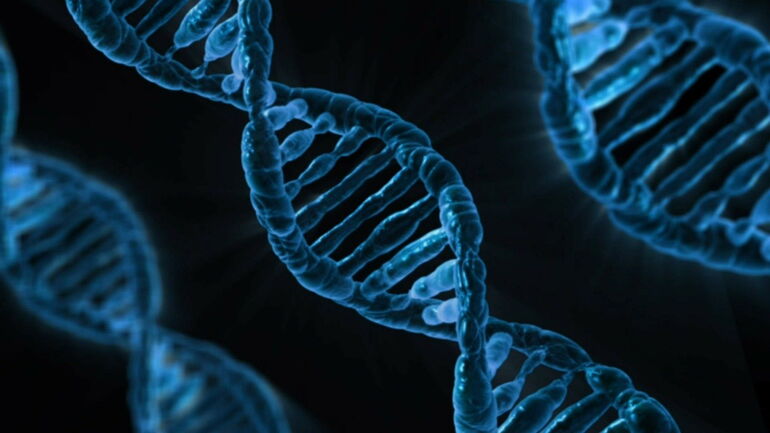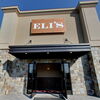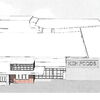Processing Your Payment
Please do not leave this page until complete. This can take a few moments.
-
News
-
Editions
-
- Lists
-
Viewpoints
-
HBJ Events
-
Event Info
- 2024 Economic Outlook Webinar Presented by: NBT Bank
- Best Places to Work in Connecticut 2024
- Top 25 Women In Business Awards 2024
- Connecticut's Family Business Awards 2024
- What's Your Story? A Small Business Giveaway 2024 Presented By: Torrington Savings Bank
- 40 Under Forty Awards 2024
- C-Suite and Lifetime Achievement Awards 2024
- Connecticut's Health Care Heroes Awards 2024
-
-
Business Calendar
-
Custom Content
- News
-
Editions
View Digital Editions
Biweekly Issues
- April 15, 2024
- April 1, 2024
- March 18, 2024
- March 4, 2024
- February 19, 2024
- February 5, 2024
- January 22, 2024
- January 8, 2024
- Dec. 11, 2023
- + More
Special Editions
- Lists
- Viewpoints
-
HBJ Events
Event Info
- View all Events
- 2024 Economic Outlook Webinar Presented by: NBT Bank
- Best Places to Work in Connecticut 2024
- Top 25 Women In Business Awards 2024
- Connecticut's Family Business Awards 2024
- What's Your Story? A Small Business Giveaway 2024 Presented By: Torrington Savings Bank
- 40 Under Forty Awards 2024
- C-Suite and Lifetime Achievement Awards 2024
- Connecticut's Health Care Heroes Awards 2024
Award Honorees
- Business Calendar
- Custom Content
Bioscience accelerator program taps ‘high potential’ ventures
 IMAGE | Pixabay.com
IMAGE | Pixabay.com
Start-up ventures aimed at detecting and treating cancer are among those getting a boost in the coming months.
The Accelerator for Biosciences in Connecticut (ABCT) on Monday announced its latest cohort of emerging ventures invited to participate in its annual program.
Startups with ties to Yale and the University of New Haven are among the dozen selected. The ventures are working to tackle a range of health issues, such as treating paralysis and healing wounds.
Margaret El Naamani, head of screening for the ABCT program, said the ventures picked to participate were chosen for their “innovative solutions to health-care problems and their impressive dedication to solving these problems.”
“These are entrepreneurs who, despite having many professional and personal obligations, have committed to using their skills, creativity, and resources to improving the landscape of medical technology,” she said.
For six and a half months, participants get help with developing fundable business plans and a professional network. They also receive assistance from an entrepreneur coach, mentoring and help with pitching to investors.
There will be a formal Pitch Day in April, when the ventures will present to an audience of potential investors, strategic partners and other interested organizations and individuals.
According to ABCT, the startups were selected based on criteria such as the strength of their team, insight into problems they are seeking to solve, and “capacity to revolutionize the life sciences industry.”
The program has helped participants further their businesses, as some have gone on to obtain grants and seed funding, and start clinical trials.
Those selected to participate in 2020 include:
Abhijit Patel (Yale) — Binary Genomics aims to develop and commercialize a blood test to enable early cancer detection via tumor-derived DNA signatures in the circulation.
Yaw Ofosu Ansong Jr. (University of New Haven) — Kova is building an AI-backed medical diagnostic platform that makes the diagnosis of sickle cell and other blood diseases cheaper, on-demand and more efficient.
Chad Bouton (independent) — Neuvotion technology treats those living with paralysis and movement disorders through AI-driven neurostimulation that modulates specific nerve and muscle targets to restore functional movement.
David Rowe (UConn) — Cloud-based generation and analysis of biologically meaningful fluorescent histological signals from mineralized tissue to assess regenerative, therapeutic and genetic challenges affecting the skeletal system.
Elizabeth Cusack (independent) — RBK Biotech has developed a nutritional product optimized for cancer care aimed at preventing and alleviating cancer-related nutritional crisis and metabolically rooted treatment side effects.
Henry Smilowitz (UConn) — Iodine nanoparticles that enhance radiotherapy useful in better treating brain tumors and other cancers.
Jayme Coates (independent) — Lactation Innovations’ Manoula device is a non-invasive medical-grade sensor that accurately detects the quantity of breast milk during breastfeeding to reduce prevalence of hypernatremic dehydration.
Lawrence Silbart (independent) —Bandage Products LLC Therapeutic produces advanced wound care products using non-toxic biodegradable microneedles to heal skin wounds and infections from the inside out.
Mark Roser (independent) — Results Group has developed a passive ankle-foot exoskeleton that inserts a spring in parallel to the Achilles tendon to improve propulsion and plantar off-loading.
Mrinal Kumar (independent) — OnTrack Rehabilitation stimulates patient balance and vision to drive faster, safer concussion recovery.
Triantafyllos Tafas (independent): QCDx develops a novel liquid biopsy to deliver precision cancer diagnosis via early cancer detection, monitoring of treatment efficacy, and surveillance for disease recurrence.
Thomas Wilson (independent): Interact Medical delivering the clinical benefits of patient-matched implants and innovative 3D-printable materials to more patients through a focused, expedited service.
CTNext, a subsidiary of Connecticut Innovations, initiated ABCT to help bioscience entrepreneurs and develop the state as a bioscience hub.
Contact Michelle Tuccitto Sullo at msullo@newhavenbiz.com.

2022 Giving Guide
This special edition informs and connects businesses with nonprofit organizations that are aligned with what they care about. Each nonprofit profile provides a crisp snapshot of the organization’s mission, goals, area of service, giving and volunteer opportunities and board leadership.
Learn more
Subscribe
Hartford Business Journal provides the top coverage of news, trends, data, politics and personalities of the area’s business community. Get the news and information you need from the award-winning writers at HBJ. Don’t miss out - subscribe today.
Subscribe
2024 Book of Lists
Delivering Vital Marketplace Content and Context to Senior Decision Makers Throughout Greater Hartford and the State ... All Year Long!
Read Here-
2022 Giving Guide
This special edition informs and connects businesses with nonprofit organizations that are aligned with what they care about. Each nonprofit profile provides a crisp snapshot of the organization’s mission, goals, area of service, giving and volunteer opportunities and board leadership.
-
Subscribe
Hartford Business Journal provides the top coverage of news, trends, data, politics and personalities of the area’s business community. Get the news and information you need from the award-winning writers at HBJ. Don’t miss out - subscribe today.
-
2024 Book of Lists
Delivering Vital Marketplace Content and Context to Senior Decision Makers Throughout Greater Hartford and the State ... All Year Long!
ABOUT
ADVERTISE
NEW ENGLAND BUSINESS MEDIA SITES
No articles left
Get access now
In order to use this feature, we need some information from you. You can also login or register for a free account.
By clicking submit you are agreeing to our cookie usage and Privacy Policy
Already have an account? Login
Already have an account? Login
Want to create an account? Register
Get access now
In order to use this feature, we need some information from you. You can also login or register for a free account.
By clicking submit you are agreeing to our cookie usage and Privacy Policy
Already have an account? Login
Already have an account? Login
Want to create an account? Register






0 Comments